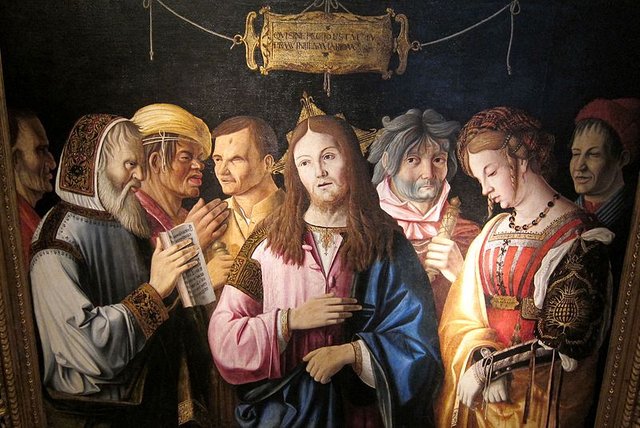Some thoughts about the philosophy. Bible and church. /part 2/
In the Bible, the apologetics saw the only and infallible source of divine wisdom. They were working tirelessly to overpower her spiritual power. Origen (185-254) transcribed all of his known variants - six - to the biblical text in the Hexapla Bible. The first "critical" edition of the Sacred Book filled fifty huge volumes!The next period (II - IV c.) In the development of philosophy-theology was called Patristics. This name means the work of the church fathers bishops and philosophers who are founders, "fathers" (of the latin pater) of the Eastern Orthodox and Western (Roman Catholic) churches.
On the eve of the Middle Ages, Patristics pointed out with a firm hand the new worldviews. Man was placed to dwell in a world created by God. People - mere mortals and sufferers - have seen only the verbal beings (fauna), the plants (flora) and the lifeless solid (the matter). In the world order above them, to God they ascended rank and dignity of many higher-ranking sanctuaries - from the local spiritual pastor to the holy World Hierarch Lord God. The painting of the universal whole, painted by Christianity, dignifiedly rivals the late anti-neoplatonic tradition. Fundamental philosophical problems have received original solutions here. Medieval philosophy evolved around a specific thematic core. Creationism presented a model of the world, originating from the word of God, from the Logos; defiantly stood antique philosophical ideas, but there was no creation but the emergence of the world. Origen's formula "creatio ex nihilo" puts a cross on every doubt in the Creator's possibilities.
The hierarchy aligned God's created concept with the ability to be read by those called: "For the heavenly hierarchy" came from beneath Dionysius Areopagitus's pen and introduced strictly differentiated competences, correlations, subordinates. Aristotle's syllogisms served minutiae, keeping in mind hierarchies. This thinking was also adhered to hierarchies by the slender subordinations in the church clergy. The need for a dialogue between Christian consciousness and antiquity rationality was also continually invoked by the interpretations of God's trinity: the Holy Trinity in its hypostases: God the Father, God-Son, God-Holy Spirit. The philosophical systems of Plato and Aristotle show how the "descent" from the highest being to the crudest body and the "exaltation" goes back. That is why the synthesis of their thinking constructions with the Christian concepts that have become so majestically vital in the philosophical-theological systems of St. Augustine the Blessed (354-430) and St. Thomas Aquinas (1225-1274) is not accidental.

Interesting.......
This post has received a 6.43 % upvote from @boomerang.
To listen to the audio version of this article click on the play image.

Brought to you by @tts. If you find it useful please consider upvoting this reply.